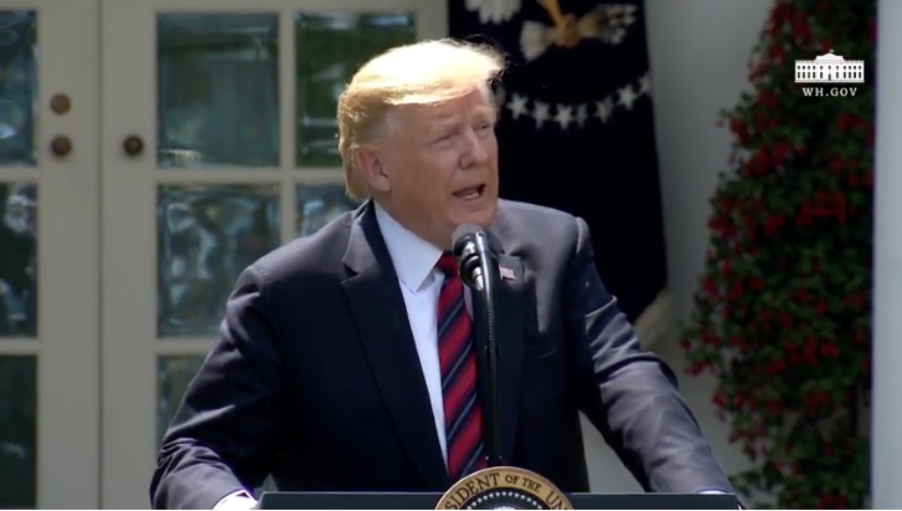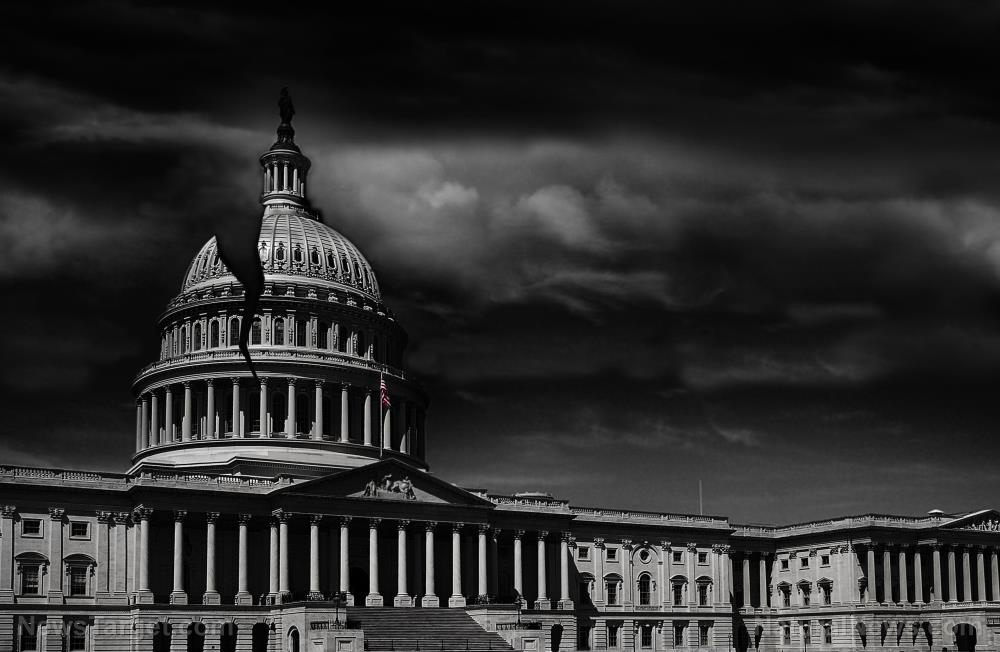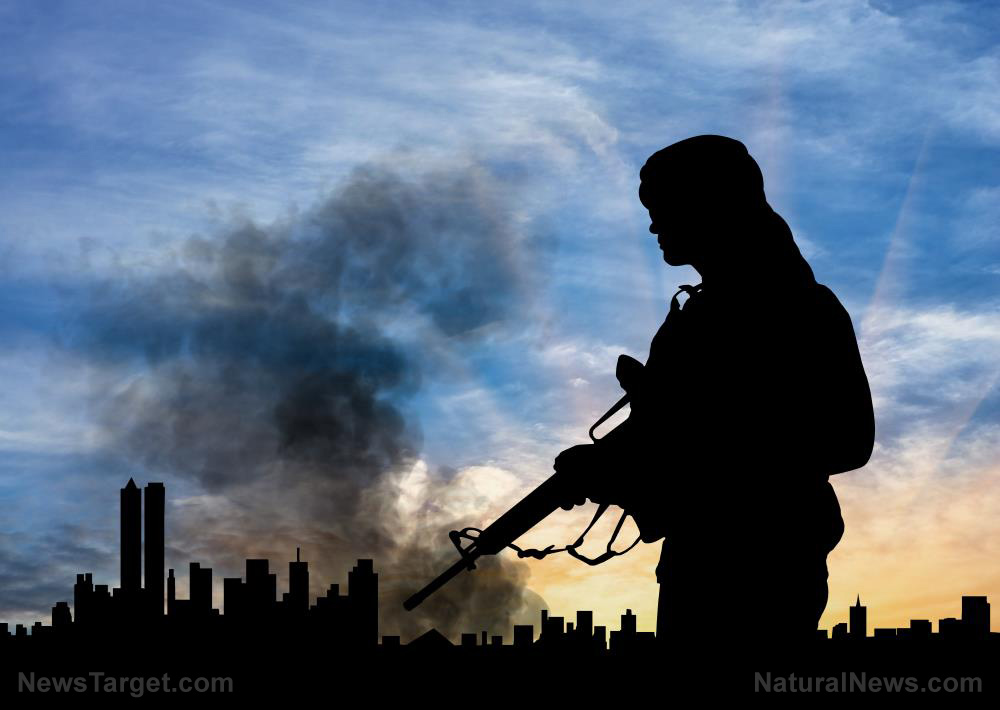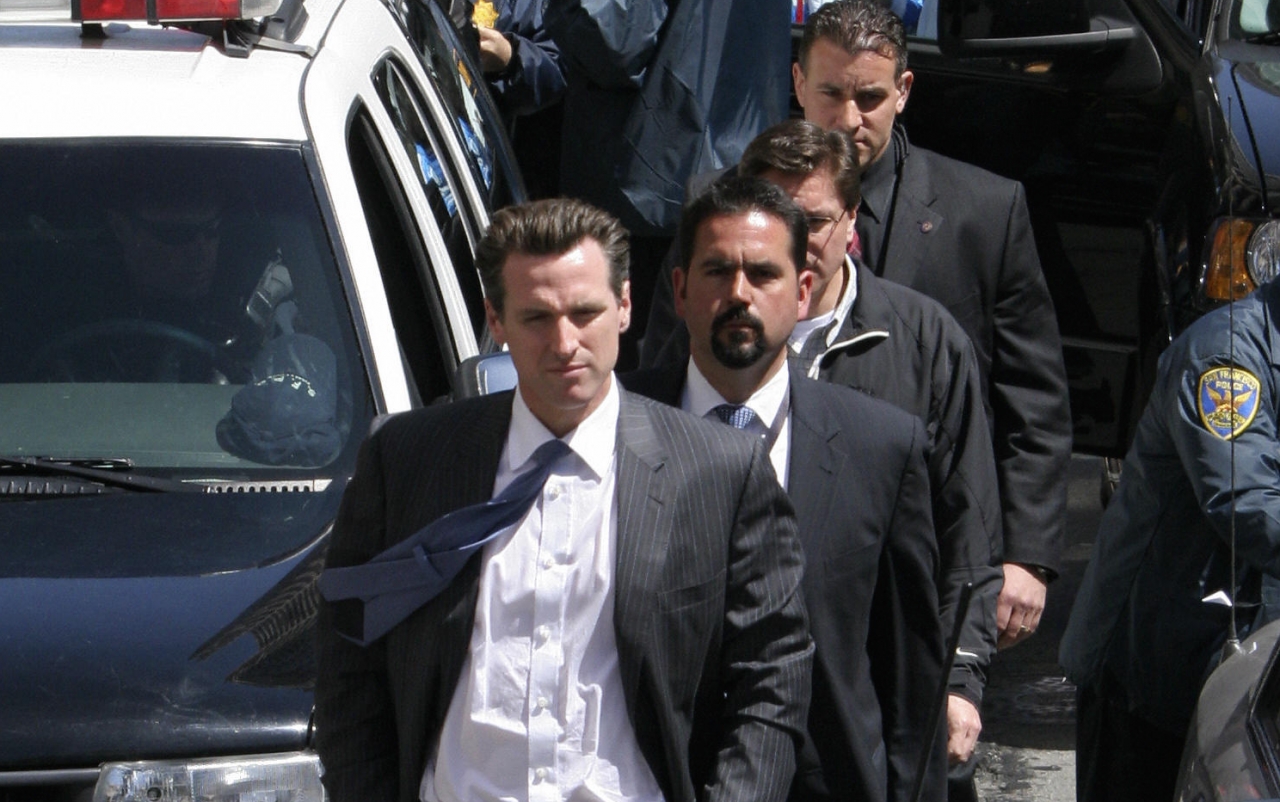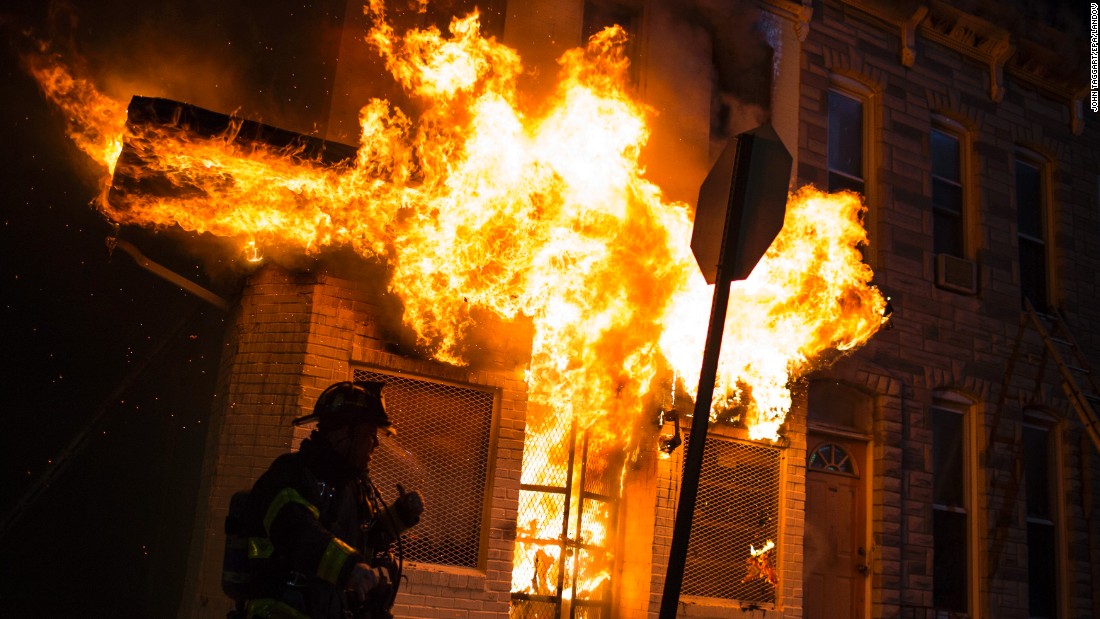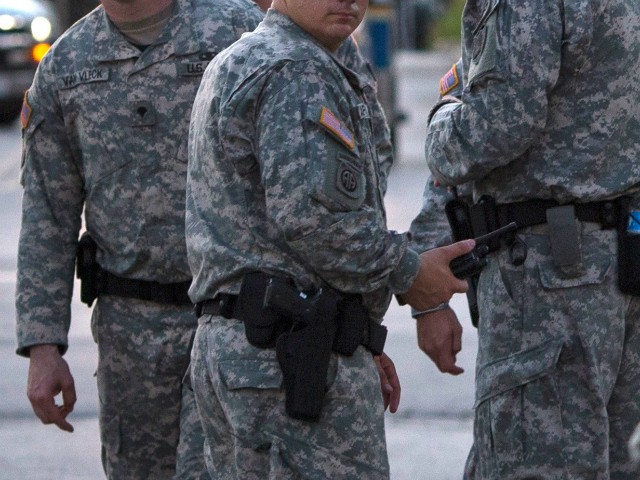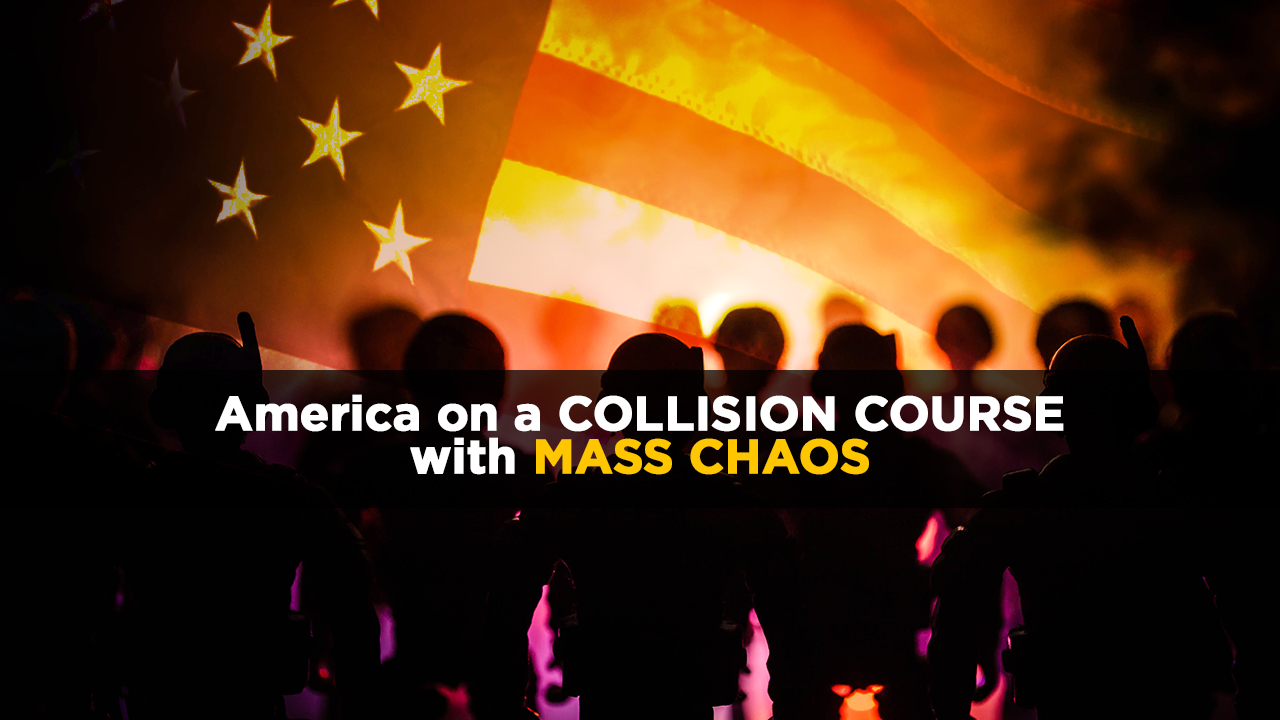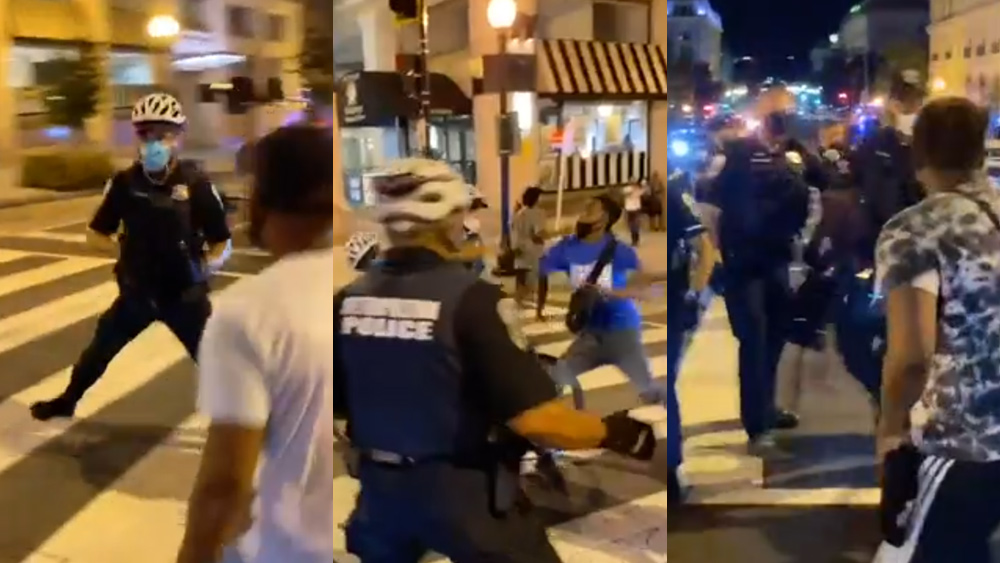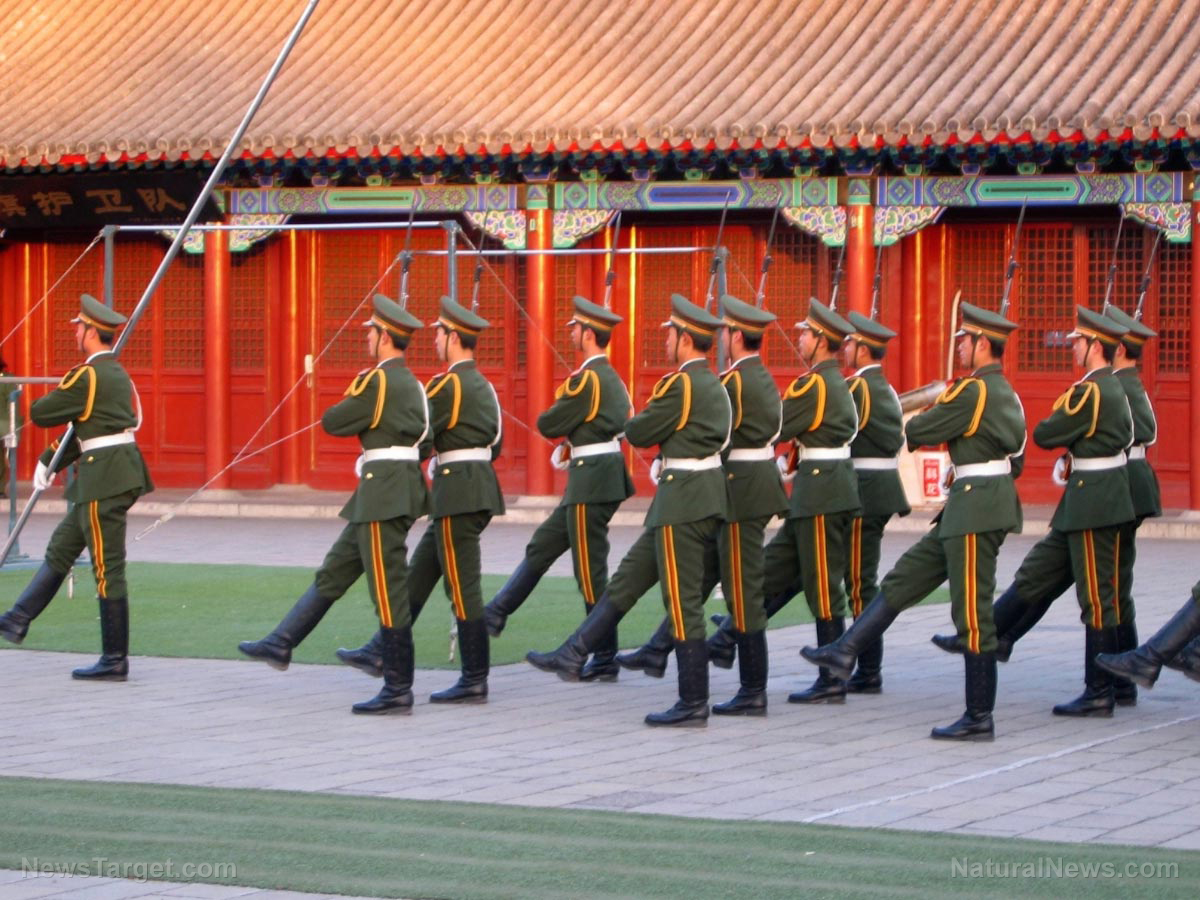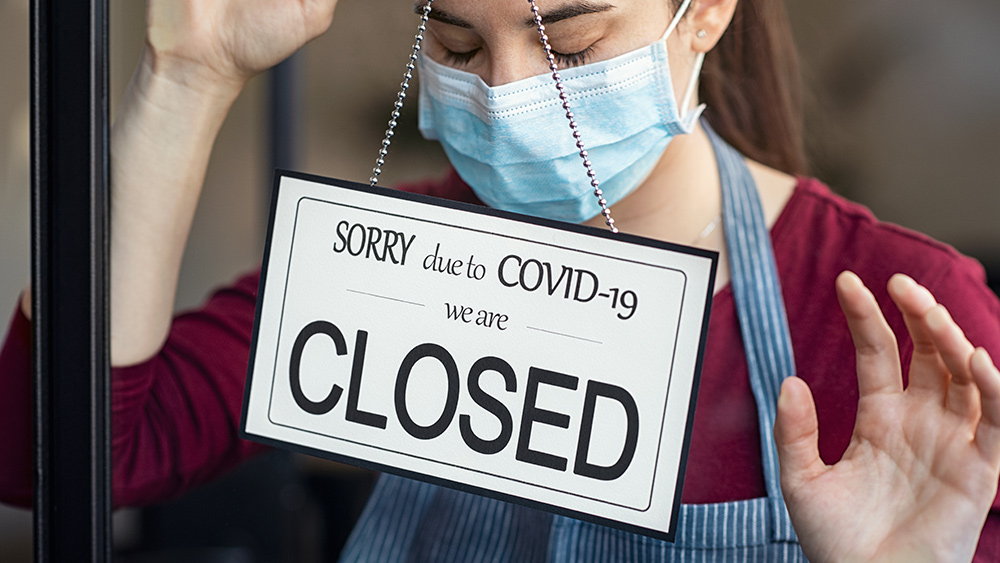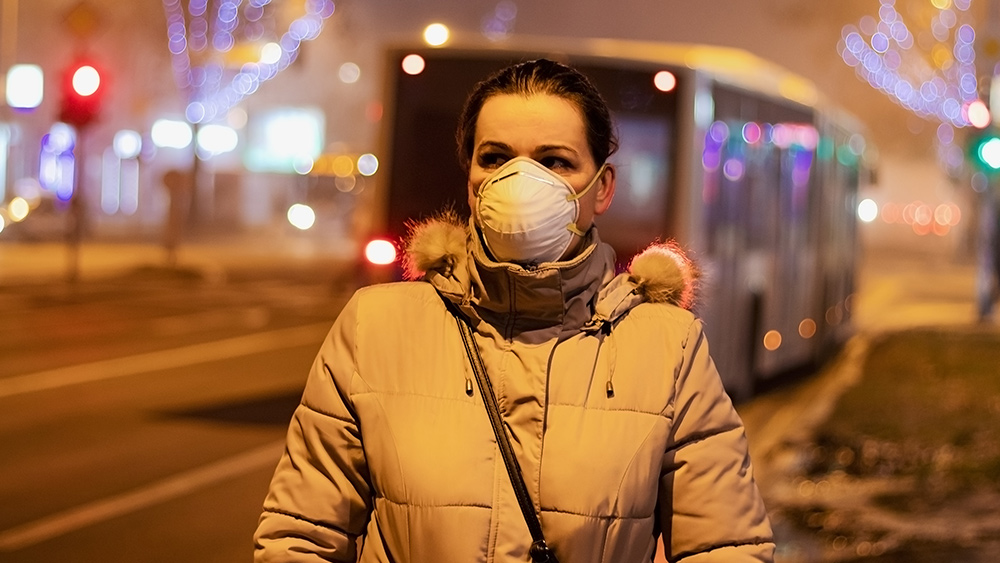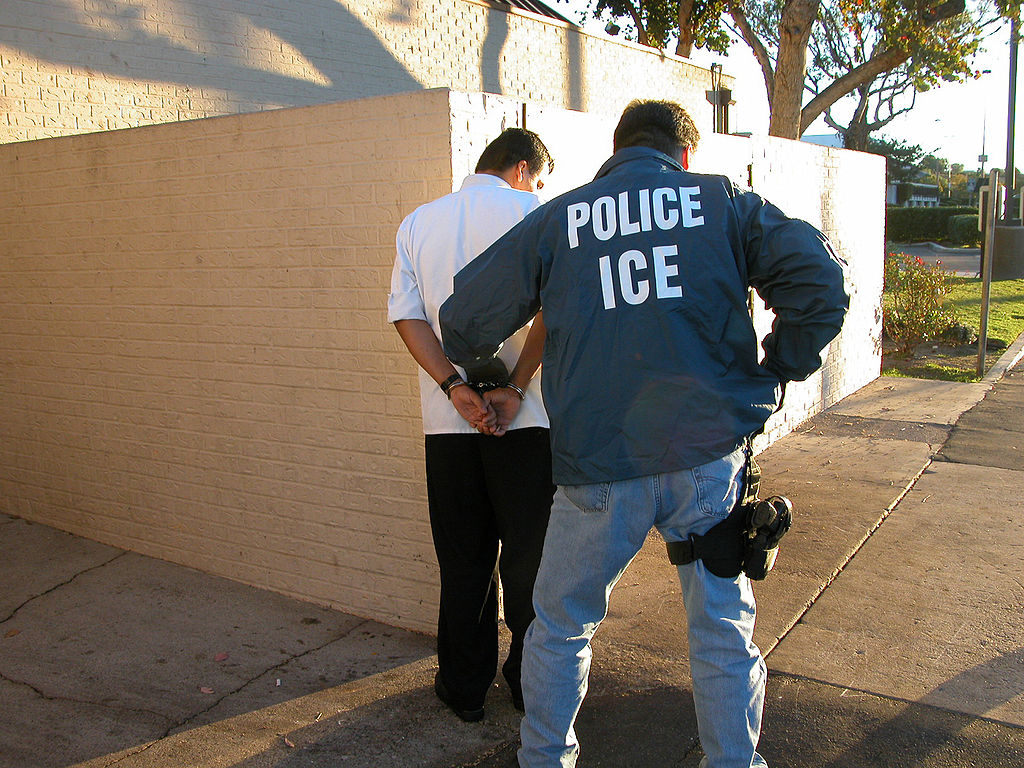Police department lieutenant: Big cities will collapse even sooner than we fear
10/04/2020 / By News Editors
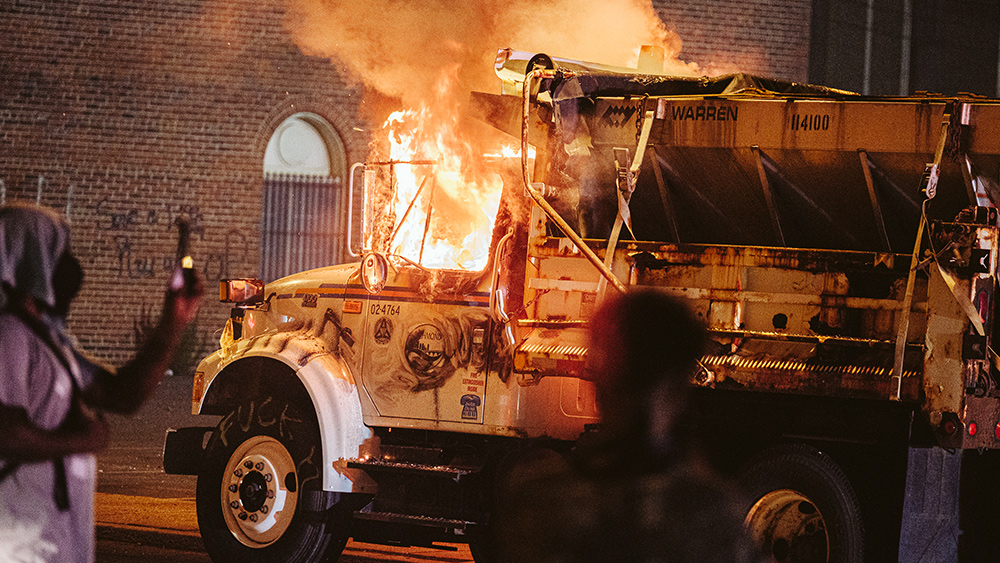
Whenever you stop a second to think about the world we live in today, do you feel uneasy, you fear for the lives of your loved ones?
(Article republished from SurvivalDan101.com)
When you see violent protests, public assaults, riots, or arson attacks on the nightly news, do you wonder if your community is next?
If you do, you are one of the millions of Americans that realize how vulnerable they really are – and how fragile our entire social and economic system really is.
Unfortunately, in addition to going through the COVID pandemic, we’re all living in a time of great distress due to all the civil unrest that has raised its ugly head throughout 2020.
The undeniable fact is, certain political factions are at war with “the system” and that means one thing, regardless of politics…
ALL of us are potential victims of the exact same chaos and lawlessness that has engulfed much of American society lately. Trouble is, in all likelihood… It’s about to get worse as we approach the coming elections.
Right now, tempers are flaring. Fueled by self-righteous indignation and desperation, various groups have given-in to a dangerous spirit of rage and destruction – as if that’s a valid form of political expression.
Frankly, we can all admit – there’s no easy solution to our nation’s social problems. But the current path we find ourselves on can only lead with certainty to one thing…to disaster.
Long-time “preppers” have always suspected – or expected – it would eventually come to this.
And while there’s no need for anyone to be melodramatic or sensational, the facts are facing all of us – and they cannot be denied or ignored a moment longer.
It would be foolish to do so.
We have written several times about how major population groupings (ie cities) will collapse ‘shortly’ after the essential elements of life cease to smoothly flow into them as needed. When there’s no water, no sewage, no food, no gas, and no electricity, things will unavoidably get very nasty.
In an earlier post, we suggested that cities will decay into violent anarchistic morasses within a week or two. In that article, we were deliberately trying to look at a ‘best case scenario’ (don’t laugh – the collapse of cities taking a week or two is, alas, a best-case scenario!). Our projection was based on the ‘best case’ hope that people would remain passive for a few days and it would only be when people realized no help was coming and they were starting to starve that things would turn truly nasty.
One of our readers, ‘Lt. Dan’, wrote in to share his perspective of what might go down, and alas, it is not nearly as sunny and optimistic as our earlier best case hope. His point is that violence will break out immediately. There will not be days of ambiguity before things start to fail.
He says that in known ‘hot spots’ in larger cities, the violence will start at once, and as soon as the violent offenders realize that the police response is inadequate (or totally missing) it will skyrocket in scope and extent.
This is a key issue for us because it impacts on our decision about when to ‘Get Out Of Dodge’ (GOOD) and hightail it to our remote retreat. How much time do we have to decide what to do between when a massive problem occurs and when the city becomes lawless?
Lt. Dan writes :
As a retired LEO with over 30 yrs dealing with “society,” I have a number of thoughts on this topic. I grew up on a working farm not close to any major metro center but in adulthood joined a sizable metro PD. So I have a perspective from various angles.
The speed and spread of lawlessness will be much faster than most will think. Even now in “quiet” times, LE staffing is usually based on the lowest number of officers to reasonably handle a “normal” day. Any event(s) beyond “normal” immediately overwhelm on-duty forces. Planned events like anarchists protesting the latest capitalist conference allow time to plan for enough ON-DUTY personnel (plus resources from other agencies) to be available when violence breaks out.
In most major metro areas there are areas the police routinely avoid because they’re too hazardous. The violent elements in these areas are constantly looking to explore their violence at a moment’s notice when the opportunity happens. And when it happens it will spread like a ruptured gasoline storage tank afire. LE forces will be quickly overwhelmed and retreat to a safe place/bunker for self-preservation.
Most LEO’s have families and a desire for self-preservation. If the collapse involves monetary problems (like no paychecks) the officers will not be reporting to duty, they’ll be protecting their own. When this happens the initial violent outbreaks will mushroom like a nuclear reaction. If the officers are being paid yet, they’ll set up a “containment perimeter” IF they have enough manpower…. which is highly unlikely in a regional or national SHTF scenario.
On other really scary thought I never see mentioned is…. what happens to the tens of thousands of violent criminals in prisons??
In a farming community where religion/moral values are generally much higher than urban dwellers, the problems of violence will be much reduced. Plus everyone usually knows each other so it’s harder to want to take advantage of them. One tip for urbanites…..farmers are not working their butts off to feed the city slickers (who’ve been ridiculing them for years as hicks, etc) and they certainly will not welcome the urbanites showing up during a crisis.
We asked Dan about his comments and background, and he told us a bit more about how he has formed the views he has – and, let’s face it, thirty years in a major metro police department and retiring as a lieutenant gives him a lot of credibilities, particularly on police related operational issues and on matters to do with how people will (mis)behave when given half a chance to do so.
Now that he can ‘tell it like it is’ we asked him in particular about something that opinions widely vary on – will the police bravely ‘man the battlements’ and fight to the last man in a failing and doomed effort to save civilization, or will they adopt – as he suggests above – a ‘my family first, everyone else second’ approach when they see the inevitability of a city’s collapse.
Dan replied :
When I first started on the PD in the 70’s I was stuck in the Comm room and on boring nights I’d actually read the Civil Defense binders (HUGE things) full of detail, much theoretical. For example, upon receiving an alert of a nuke attack we were supposed to call a long list of elected officials and city unit directors etc. We all knew it’d be a total waste of time to call these clueless government people because all they’d do is panic and babble on the phone asking US what to do!
We (cops) talked openly in the Comm Room about what we’d do and we decided we’d immediately leave our posts and spend our remaining time with family. The point being alerting totally clueless and incompetent “leaders” would do nothing except add to the panic and confusion over which we (cops) would have ZERO control over.
It is important to understand how much we can learn from past ‘lessons’ with breakdowns in cities (in the case of the US, the L.A. riots being a prime example) and how much we have to adjust for a future breakdown of society.
We suggest that the big difference is that in past events, the problem has been successfully contained to a restricted region, and the police have had, in effect, virtually unlimited reinforcements and resupply, and there has never been any question of what the ultimate outcome would be – of course, law and order would triumph.
But in a future society-destroying event, none of this applies. The police will have no resupply or reinforcement, and problems will break out in multiple locations.
We agree with Lt. Dan that very quickly, the police will see the unwinnable nature of the contest and will switch from attempting to defend a disintegrating society from itself, and will focus instead on attempting to ensure the safe survival of themselves and their immediate family and friends.
Summary
Lt. Dan puts it very vividly when he writes
[Violence] will spread like a ruptured gasoline storage tank afire
This means that if you have a GOOD plan and a retreat to go to, you need to be ready to activate this sooner than you might have otherwise hoped for. As soon as you hear the first word of lawlessness, rioting, looting, and general disorder breaking out, you should accept that this will spread like wildfire across the entire city, and leave as quickly as you can.
Oh – one more unsettling thought. How will you learn that violence has broken out in another part of the city if the internet is down, and radio and television stations are also down? Even if some broadcasters remain in service, they’ll probably have limited sources of information and it might take a while for them to become appraised of events and to then broadcast them.
It is also reasonable to guess that broadcasters will be asked ‘not to spread panic’ and so initial reports of violence breaking out might be downplayed or omitted entirely.
Choosing when to bug-out is a difficult but essential issue. You need to be willing to leave before it becomes too late, and with inertia and resistance to change and desperate hope all encouraging you to delay your decision, you need to fight these tendencies. Better to leave ‘too soon’ and return back again sometime later, safely; than to leave it too late and suffer the consequences.
The current situation in America is like a “powder keg” – and one wrong spark could set everything ablaze without warning.
Read more at: SurvivalDan101.com
Tagged Under: bugout, chaos, civil war, Collapse, community, political correctness, politics, protests, riots, rule of law, SHTF, society, violence
RECENT NEWS & ARTICLES
COPYRIGHT © 2017 COLLAPSE.NEWS
All content posted on this site is protected under Free Speech. Collapse.news is not responsible for content written by contributing authors. The information on this site is provided for educational and entertainment purposes only. It is not intended as a substitute for professional advice of any kind. Collapse.news assumes no responsibility for the use or misuse of this material. All trademarks, registered trademarks and service marks mentioned on this site are the property of their respective owners.

